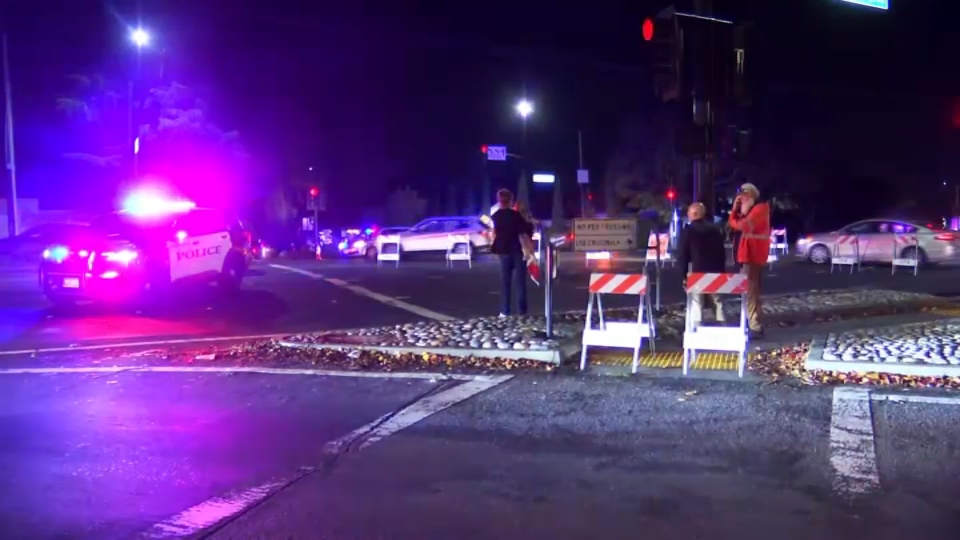A former Pittsburg police officer who shot and wounded his wife then later shot at police during a 36-hour standoff at his Pleasant Hill home last month pleaded not guilty at a hearing Thursday.
Chunliam "Nai" Saechao, 40, appeared in a Martinez courtroom packed with supporters, many of whom said they were thankful police didn't kill Saechao.
Saechao faces numerous charges, including attempted murder of peace officers, assault with a firearm and injuring a spouse. He's being held at Martinez Detention Facility on no bail status.
Saechao also denied the enhancements attached to some of the charges. A decision over a proposed protective order for his wife was delayed a week, as her attorney didn't appear in court Thursday because he had jury duty.
Get a weekly recap of the latest San Francisco Bay Area housing news. Sign up for NBC Bay Area’s Housing Deconstructed newsletter.
After the hearing, more than 30 supporters -- including Saechao's wife and parents -- and Saechao's attorneys appeared outside the courthouse to thank police and discuss the on-the-job post-traumatic stress disorder they said forced him into an early retirement and caused the mental health crisis leading to the Dec. 7-9 standoff.
Saechao's wife, who was present but chose not to speak, doesn't want the protective order so she can provide support for her husband, attorneys said.
Saechao's lawyer Tyler Smith said he spoke for Saechao's family when he thanked officers from various Contra Costa County agencies for not killing his client. The entire Sherman Acres neighborhood was locked down at least twice during the standoff.
"This could have gone terribly wrong," Smith said. "They could have taken Nai's life during the standoff and so we want to recognize their professionalism, their patience, for doing that."
The standoff began around 7:30 p.m. on Dec. 7, when Saechao shot his wife through a door with a shotgun. She was taken to a hospital and released the next day.
Pleasant Hill police put a shelter-in-place order around the home at 227 Cleopatra Drive, near Monument Boulevard and Buskirk Drive, about a block from Interstate Highway 680.
SWAT personnel and other officers left the scene around 2 a.m. Dec. 8, wanting to de-escalate the situation after determining Saechao wasn't an immediate threat to the community.
Another lockdown was called and SWAT officers returned at 5:30 p.m. that day. The nearby Monument Boulevard freeway off-ramp was shut down.
"I can't tell you how grateful I am to law enforcement … Pleasant Hill police, Concord police, Pittsburg police and the FBI, for saving my son's life. I cannot thank you enough for what you did," said Saechao's mother, Mueyhaw Saelee. "Thank you for how professional you were in handling this situation. You are doing what my son was doing before his retirement: Protecting people every day."
Saechao's other lawyer, Curtis Briggs, said the case should bring attention to the lack of support officers get from departments when forced into retirement.
He said Saechao went through numerous incidents contributing to the PTSD fueling the standoff, including one in which a suspect held a gun to Saechao's face and pulled the trigger, but it didn't fire.
"I've had several peace officers reach out to share their experience about what it's like to go through a PTSD retirement," Briggs said. "The years after an officer retires from something like PTSD are spent fighting for what kind of financial benefit they'll get. They're completely isolated from their peer group; they can no longer do their job. They no longer have an identity. And the sad thing is the way cities and counties are dealing with it, is they don't give them any real support."
Briggs did acknowledge Saechao is probably still alive because he was an ex-cop and, as such, got more patience than other suspects in similar situations.
"What I think happened is, these guys made a legitimate effort to try not to kill him. But I don't think this happens to civilians when they have this problem. So, I think that needs to be explored. If that's a legitimate tactic of de-escalation, it needs to be applied to everybody going through a mental health problem," he said.



